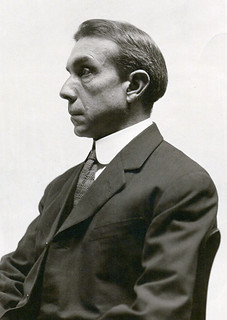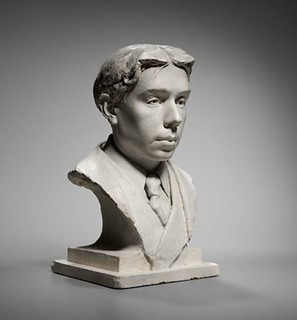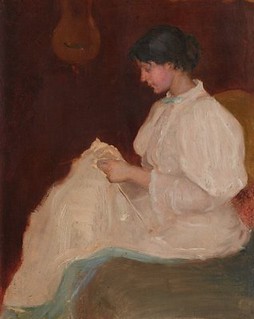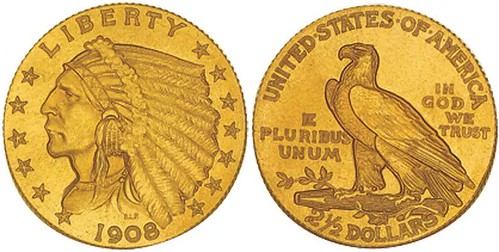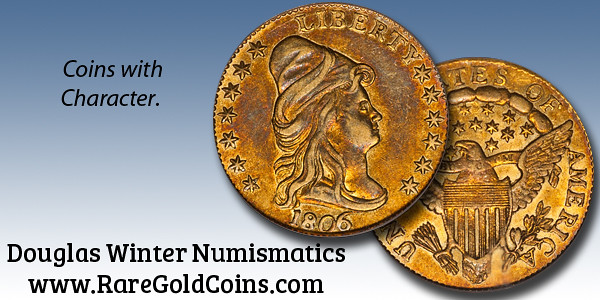
PREV ARTICLE
NEXT ARTICLE
FULL ISSUE
PREV FULL ISSUE
V25 2022 INDEX E-SYLUM ARCHIVE BELA LYON PRATT II (1867-1917)American Numismatic Biographies author Pete Smith submitted this article on sculptor Bela Lyon Pratt. Thanks! -Editor
Bela Lyon Pratt II was born in Norwich, Connecticut on December 11. 1867, and named after his grandfather. His father was a Yale educated lawyer, George Pratt (1832-1875). His Mother, Sarah Victoria Whittlesey Pratt (1831- 1923), came from a musical family. Sarah was the daughter of Oramel Whittlesey (1801-1876), a piano maker who founded Music Vale Seminary in Salem, Connecticut, in 1835. Bela would learn to play guitar, cello and oboe. There is a story about Pratt in the November 2013 issue of The Numismatist:
Following the legacy of his father, Bela enrolled at Yale University School of Fine Arts in 1883. His education continued at Art Students League in 1887. There he studied under Augustus Saint-Gaudens and he worked at the Saint-Gaudens studio. He studied in Paris and won awards for sculpture at Ecole de Beaux Arts. He returned to the United States in 1892 to create two large sculptural groupings, the Genius of Navigation and the Genius of Discovery, for the 1893 Worlds Columbia Exposition. There were two examples of each with one at either entrance to the Peristyle. Many fair buildings, constructed of wood covered with plaster, were destroyed in a fire that started on January 7, 1894. The Peristyle and sculptures were destroyed in that fire. In 1893 he joined the faculty of the Boston Museum of Fine Arts as instructor of modelling and remained there until his death. He married Helen Lugarda Pray on August 11, 1897. They had two sons and two daughters. The couple were preserved in art with an oil painting of Helen by Bela and a plaster bust of Bela by Helen. Pratt was a very skilled and prolific artist creating public monuments, medals, plaques, busts and individual pieces. He is credited with more than 180 works during his too brief life and died before he was fifty. The Thomas Jefferson Building for the Library of Congress was constructed during 1890 to 1897. In 1895-96, Pratt produced a number of sculptures for the new building. At the entrance are granite sculptures representing Science, Literature and Art. The second floor has a series of four circular reliefs representing Summer, Autumn, Winter and Spring. In the main reading room is his sculpture representing Philosophy. President Theodore Roosevelt wanted a new design for United States gold coins. Sculptor Augustus Saint-Gaudens did the design for the new $10 and $20 gold pieces introduced in 1907. In 1908, Dr. William Sturgis Bigelow suggested a new concept for the $2.5 and $5 gold coins. Bela Lyon Pratt was selected to execute these incuse Indian Head designs that came to be known as the Bigelow-Pratt designs. They were incuse or more correctly, recessed relief. They were in production from 1908 through 1929. He created the New Theater Medal for the American Numismatic Society, their 25th medal. It was dated 1909 but not issued until 1916. He died of heart disease at Jamaica Plain, Boston, Massachusetts, on May 18, 1917. At the time he was working on Alexander Hamilton for Grant Park in Chicago. Pratt is buried with his parents at Mosswood Glen Cemetery in Salem, Connecticut. Hamilton may be seen on Broadway in New York but the Grant Park statue has been hidden in storage for twenty-five years. Pratt had an extended relationship after attending Yale. He created the medal for Yale University Bicentennial in 1901. He also sculpted a statue of Nathan Hale that stands next to Connecticut Hall at Yale. Copies of this statue are also at Fort Nathan Hale, The Chicago Tribune Building and at C.I.A. Headquarters. The Bela Lyon Pratt Coin Room was established at Yale University in 2012. The Yale University Art Gallery announced the opening of the Bela Lyon Pratt Gallery of Numismatics on May13, 2022. It features numismatic art from the University collection. I remember a coin meeting many years ago where one member dealer remarked that Bela Lyon Pratt was a woman coin designer. John Burns and I rolled our eyes at each other thinking, "Should we tell him...?" -Editor
To read the earlier E-Sylum articles, see:
Wayne Homren, Editor The Numismatic Bibliomania Society is a non-profit organization promoting numismatic literature. See our web site at coinbooks.org. To submit items for publication in The E-Sylum, write to the Editor at this address: whomren@gmail.com To subscribe go to: https://my.binhost.com/lists/listinfo/esylum All Rights Reserved. NBS Home Page Contact the NBS webmaster 
|
